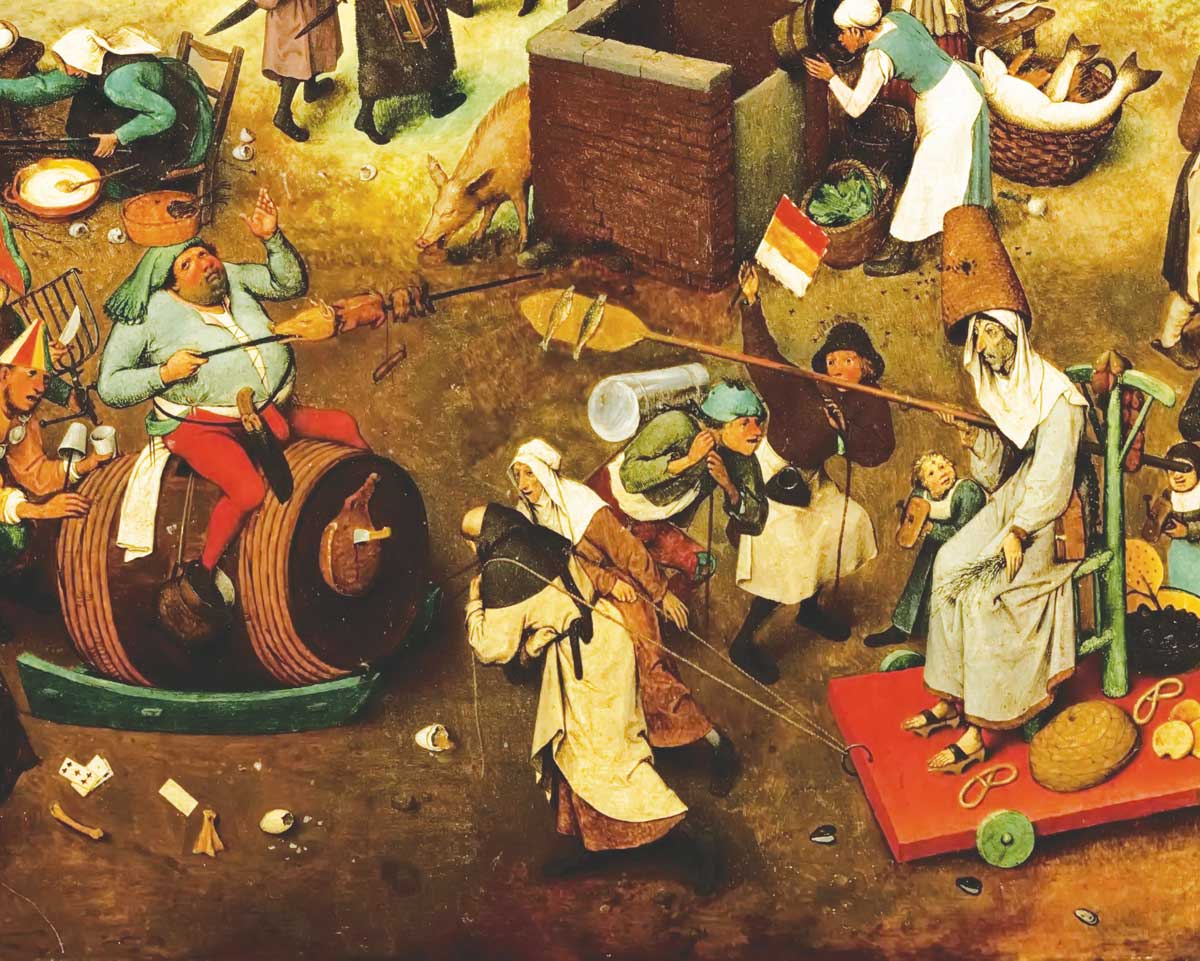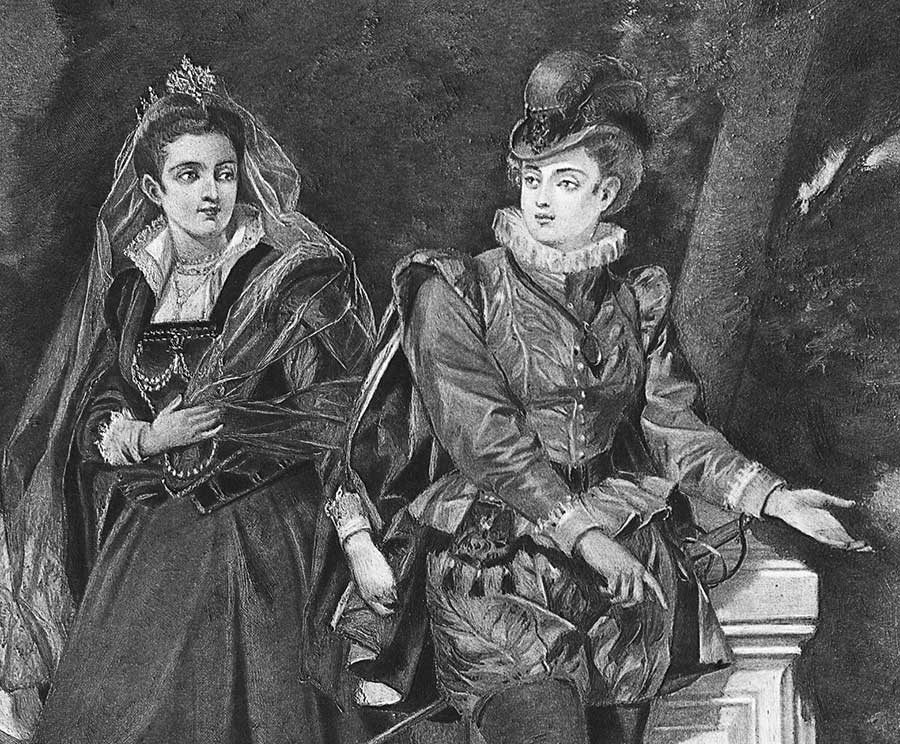The Cane Mutiny
David Holford on Why We’re Losing the Battle to Teach Kids
School discipline used to involve the destruction of trees. In the United States, these were most often cut into flat pieces of board, narrowed at one end to create a convenient handgrip. In Britain, they were manufactured into canes of various lengths and diameters. These policies did not make a significant impact on the environment.
In the U.K., where I teach, it has been against the law since 1987 to use any form of physical punishment, though as a practical matter it ceased long before that. As a result, there have now been two generations of Untouchables, and untouchable with more than the cane. Discipline is a farce. As teachers, we know it. Worse, the students know it.
Authority over education in England emanates from Westminster (the central government), and the child psychologists who have influenced Westminster chant the mantra that violence begets violence. Beat them and they will beat others. Of course, as is the case with most child or other psychology emerging from the epistemological assumption that anything might be true except the Bible, it produces the opposite result in practice. Levels of violence, both in school and out, have risen year on year.
Paper Discipline
In the summer term of 2003 (a period of about 12 weeks), there were about 4,300 assaults on adults in schools. Less than 300 of these resulted in permanent expulsions. There were over 13,000 assaults on other students. Only 336 of these resulted in expulsions. The rest resulted in fixed-term suspensions averaging 3.5 days.
There are no records for the incidents that did not result in any absence from school. The government insists that everyone is entitled to an education and pressures the local education authorities, which reinstate excluded pupils and bring their own pressure to bear on head teachers.
What happens after these yobs leave school? Figures for April 2004 to March 2005 show violent crime in England and Wales up by 8 percent from the previous year, excluding sexual offenses and robbery. Sexual offenses were up by 17 percent. This is not a surprise. The violent crime figures for 2003–2004 were up by 12 percent over the year before, when they were up by 22 percent over the year before that (and up 27 percent for rape and 28 percent for robbery). Going further back, the trend is the same. Between 1997 and 2003, the reported incidents of rape were up by 82 percent.
In England, education still involves the destruction of trees. Today, there must be great gaps in the Amazon rain forest attributable to what passes for discipline in British schools. All incidents are recorded and placed in files. Every detention slip is in triplicate: one for the academic department; one for the head of year; and one for the student to take home, forge an adult-looking signature, and bring back to school—if he can be bothered.
When the student doesn’t show up for the detention—and I had one week recently where 87 percent of detainees failed to show up for departmental detention (the first rung on the incarceration ladder)—a new triplicate detention slip is issued for the following week. When he doesn’t show up for that one, a triplicate “alert slip” is filled out in reasonable detail and given to the head of year (or grade), who calls him in for detention. When he doesn’t show up for the resulting head-of-year detention, letters go home, with copies to every relevant member of staff.
So, when one of the miscreants can’t behave in class and all of the low-level methods have been used so that a detention results, it can take at least a dozen pieces of paper until all is right with the world. Give a handful of detentions in a lesson (and I can remember giving as many as six, but I’m sure I’ve given more) and it all starts to add up. And that’s just naughty kids in one lesson.
Playing Games
So how do we try to make kids behave? Classroom management requires an arsenal of weapons.
Part of it is personality, though not necessarily a real personality. A good teacher must be a good actor—so good that reasonably intelligent teenagers cannot tell that he is acting. A teacher has to exude confidence and play the tough guy. He has to master the deadly stare and other non-verbal techniques. He has to learn to vary his voice for every possible situation. He has to be threatening, knowing that there are very few threats he can actually carry out, such as the detentions already mentioned.
The most important weapon in the war is a well-planned lesson. I have nothing against planning. I think it is a good thing. What I don’t like is how the kids dictate the ways lessons must be planned. I don’t mean that their educational needs dictate the lessons. Lessons have to keep their attention.
I was talking to a colleague who spent the first part of her teaching career in Miami. She said the biggest difference between teaching in the United States and the U.K. was that over here everything has to be a game. She’s an English teacher, but it’s true of other subjects as well, including mine. The scheme of work I was supposed to follow, though never had the resources to do so, was almost all games and activities.
Actual teaching—you know, the I-tell-you-something-and-you-learn-it bit—is downright frowned upon. Or as I was told by the person responsible for the final decision to pass me in my probationary year, “chalk and talk” is twenty years out of date. He did say that apparently it is still acceptable in the States, though he was baffled by this.
And for a good reason. Most of the students simply can’t handle it. For secondary students today, at least in the U.K., life consists of a series of entertainments. If they aren’t being entertained, they get bored. And if they get bored, they get naughty.
The more likely the subject to cause boredom, the more prevalent the games. They don’t need games in most of the design and technology subjects, like resistant materials or cooking. They need some in maths and English. Because religion is seen as a complete irrelevance by most students today, I need lots of games in religious education. Last year, my lesson plans had to include a starter activity, three activities as part of the main lesson, and a plenary activity to sum it all up.
All in the Family
Children are in school for about seven hours a day. For many of them, it is the only time they are in a safe, structured environment. It is often the only experience they have with basic rules of conduct in a civilized society. As a result, they have little concept of appropriate behavior.
And as a little yeast leavens the whole lump, bad behavior is contagious. As a Year 7 form tutor, I saw this happen before my eyes. In September, my form were fresh out of their more insulated primary schools.
As their friendships began to change and develop, those within the friendship circles of the naughty kids began to change. These were children who were worried that I’d ring their parents, but not so worried that they didn’t become difficult at times. At the Year 7 parents’ evening near the end of the year, I had to tell more than one set of parents how their child’s behavior had deteriorated over the year as he began hanging around with the wrong crowd.
As I mentioned above, this is the second generation of Untouchables. Rather than supporting teachers, parents are often indignant that their child has been corrected. The father of a student in my form recently told a teacher that if she gave his daughter another detention, he would come to the school and “sort her out.”
In one Midlands county, almost ten percent of all physical attacks on teachers were perpetrated by parents. The National Association of Head Teachers reported that in January 2005, five heads were attacked by parents, while ten were threatened by them.
Now, here is the point of all this. At my now-previous school, our yearly progress reports included a rating of each student in each subject for “attitude to learning” reflecting classroom behavior and effort. The rating would be excellent, good, satisfactory, or poor.
One head of year sent out a congratulatory letter to parents of children who received three or more excellents and a letter of concern for three or more poors. He told me that he discovered quite accidentally that the congratulatory letters were all addressed to “Mr. and Mrs.” of the same surname, while the concerned letters were all sent in envelopes addressed either to single parents or to parents of different surnames.
A government in denial leads to families in disarray, while at the same time families in disarray lead to a government in denial. Both or either results in teachers without authority, subjects without content, children without self-control, schools without discipline, and a society in disintegration.
subscription options
Order
Print/Online Subscription

Get six issues (one year) of Touchstone PLUS full online access including pdf downloads for only $39.95. That's only $3.34 per month!
Order
Online Only
Subscription

Get a one-year full-access subscription to the Touchstone online archives for only $19.95. That's only $1.66 per month!
bulk subscriptions
Order Touchstone subscriptions in bulk and save $10 per sub! Each subscription includes 6 issues of Touchstone plus full online access to touchstonemag.com—including archives, videos, and pdf downloads of recent issues for only $29.95 each! Great for churches or study groups.
Transactions will be processed on a secure server.
more from the online archives
calling all readers
Please Donate
"There are magazines worth reading but few worth saving . . . Touchstone is just such a magazine."
—Alice von Hildebrand
"Here we do not concede one square millimeter of territory to falsehood, folly, contemporary sentimentality, or fashion. We speak the truth, and let God be our judge. . . . Touchstone is the one committedly Christian conservative journal."
—Anthony Esolen, Touchstone senior editor









